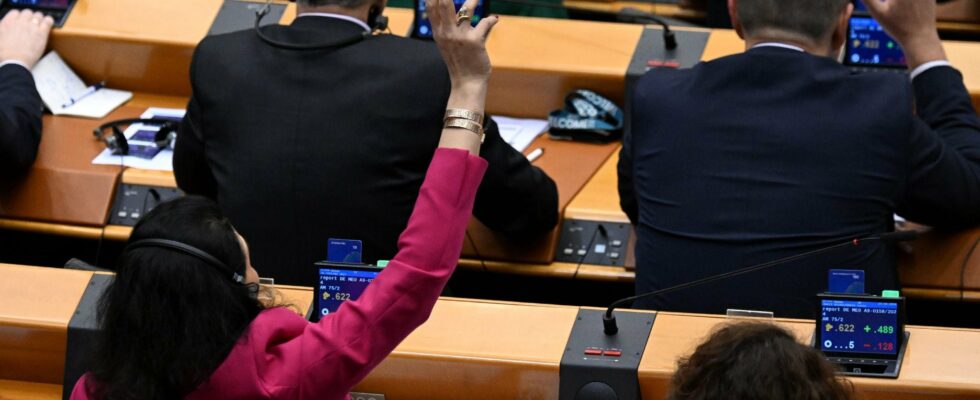The figure is dizzying. In May, 9,000 employees were victims of a massive leak of personal data, during an attack on People, the European Parliament’s human resources service. Identity cards, birth certificates, diplomas, but also medical records are affected. “All personal data has been vacuumed up,” confirms MP Nathalie Loiseau (Renaissance/Renew), two of whose colleagues out of three were affected by this theft. Three months earlier, this elected official, a member of the Parliament’s defense subcommittee, had – already – been the victim of espionage: her cell phone had been infected by the Israeli surveillance software Pegasus.
The alarm signals are becoming more and more insistent in Brussels. Bringing together thousands of diplomats, collaborators and interest representatives, the epicenter of the European Union is a theater ripe for espionage and foreign interference. Qatargate, a corruption scandal orchestrated by Qatar and Morocco in the European Parliament, revealed in 2022, showed the flaws in European institutions. “The European Parliament is affected by structural vulnerabilities, confirms Arnaud Danjean, MP (LR/PPE). It is exposed to interference and the responses are not up to par.”
However, reforms have been put in place to respond to the emergency, such as the ban on friendship groups between parliamentarians and countries, or the compulsory publication for all parliamentarians of their meetings with lobbies. “It’s a step towards transparency,” concedes Nicholas Aiossa, Europe director of the NGO Transparency International. “But without the resources necessary to check these registers, how can we ensure compliance with the rules?” The question is all the more pressing as it concerns European security. “Attempts at interference exist,” agrees MEP Philippe Lamberts (Green Group/European Free Alliance). “The ones that are most obvious come from the Russians.” In January, an investigation carried out by the independent Russian site The Insider revealed that Latvian MEP Tatjana Zdanoka would have worked for years for the FSB, the Russian intelligence service.
The heart of the European reactor
Brussels probably thought it had cleaned up. The day after the Russian invasion of Ukraine, around forty Russian intelligence officers under diplomatic cover were expelled from the EU. But how many are left? In 2019, an investigation by the German newspaper World am Sonntag counted “around 250 spies and 200 Russian spies in the European capital”. A colossal number, but one that should be taken with caution. “You can hardly quantify the number of spies,” underlines a source close to the VSSE, the Belgian civil intelligence service. Do you count those in embassies? Sources who provide information without being employed by a foreign service ?” Sprawling, espionage infiltrates every layer of the capital.
But the most recurrent attempts are often found in the close entourage of MEPs. In April, Jian Guo, assistant to German far-right AfD party MEP Maximilian Krah, was arrested and suspended on suspicion of spying for China. A month later, ten days before the elections, the Belgian federal prosecutor’s office announced that searches had been carried out at the home and in the Brussels offices of Guillaume Pradoura. The parliamentary collaborator, also a former assistant to MEP Krah, is targeted as part of the investigation into suspicions of Russian interference and corruption surrounding the Moscow-funded information site, Voice of Europe.
Parliamentary assistants as a gateway
“The constant in the latest cases of interference within the EU is the involvement of European parliamentary assistants, observes our source close to the intelligence services. Each time a foreign power wants to influence elected officials, their collaborators are used as a gateway. They obviously risk little. “There is a culture of impunity in the European Parliament,” continues Nicholas Aiossa. “If a parliamentarian violates the code of conduct, the worst sanction he faces is a thirty-day deduction from his daily allowance!”
Suspected of espionage, Tatjana Zdanoka was finally punished with a fine of five days on her daily allowance and a ban on exercising certain functions representing Parliament. The Latvian, who is due to end her term in July, has not appealed.
.
